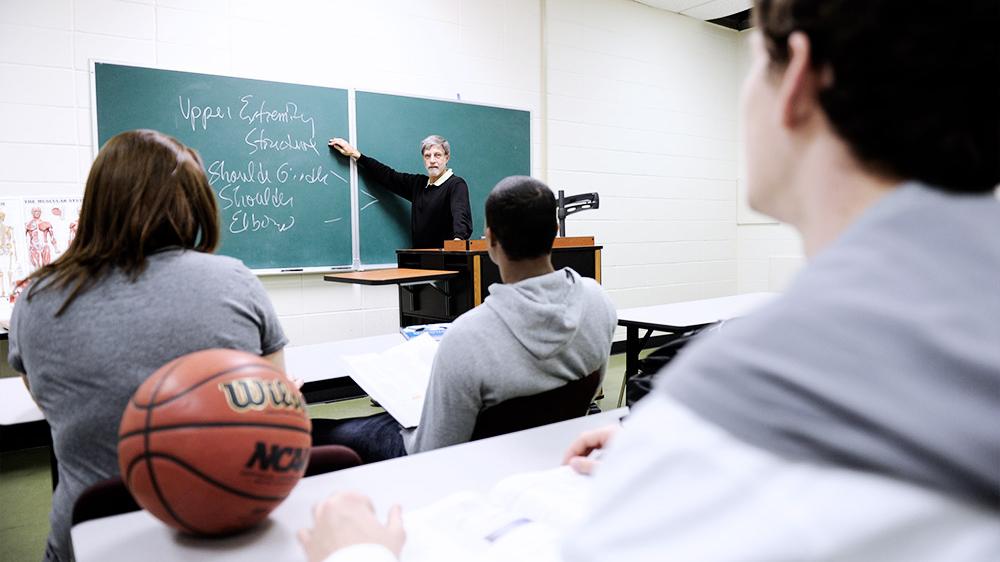The House Education and Employment Committee passed a measure Wednesday that seeks to establish rules and protections regarding student athlete representation and compensation for the use of their name, image, and likeness (NIL).
Naples Republican Rep. Yvette Benarroch presented the bill (HB 981) and explained that the legislation would limit what athlete agents are able to receive from NIL earnings and would create transparency by establishing a public database of agents.
“This bill protects student athletes by placing a 5% cap on the fees athlete agents can collect from new name, imagine, and likeness or NIL contracts, involving NIL collectives,” Benarroch said. “It also allows high student athletes, not just seniors, to earn NIL compensation if they’re being recruited to play sports.”
Benarroch said that student athletes would be able to seek advice, while audit requirements would be removed.
“Additionally, the bill ensures student athletes can seek advice from coaches, economic advisers, or their school registered advisers, with parental consent required for minors,” Benarroch said. “Finally, it removes an unnecessary Department of Education audit requirement, as schools are only required to maintain a list of registered advisers.”
“The bill is a balanced approach that protects student athletes, ensures transparency, and promotes responsible NIL participation,” Benarroch added.
An amendment was adopted that clarifies that the 5% cap only applies to collectives and does not require a student athlete to register compensation with the Florida High School Athletic Association. It further clarifies that a high school student may earn compensation for name, image, or likeness and must get parental consent if the student athlete is under the age of 18.
Sarasota Republican Rep. Fiona McFarland thanked Benarroch for the bill and for taking suggestions into consideration after the last committee stop.
“This bill has made a great improvement, and I know that you will continue to do so as it completes its journey through the committee process,” McFarland said. “As it moves forward, I still have some concerns about this new category we’re creating of a registered adviser. Perhaps outlining where the adviser needs to register, that feels like a very formal title to me.”
McFarland added that she also has concerns over public high school coaches having an alternative revenue source through NIL deals when they’re being paid by Florida taxpayers.
“Those are two very separate activities in my mind, and I know that your heart for protecting our student athletes will dive into these issues,” she said.
Jacksonville Democratic Rep. Kimberly Daniels supported the bill and said she would like to sign on as a co-sponsor and encouraged her colleagues to do the same.
“Representative Benarroch, thank you for this great bill,” Daniels said. “It’s awesome the work that you’re doing and I’m even going to sign on as a co-sponsor and ask my colleagues to do the same.”
North Miami Beach Democratic Rep. Wallace Aristide also supported the bill and noted that he has personal experience with student athletes as an educator and pointed out that his son is a football coach at Texas A&M.
“I’ve been around football all my life, my son is a football coach at Texas A&M, there’s really a tremendous issue, it’s a major problem, families will understand,” Aristide said. “See, there’s a real-life thing happening here, and sometimes when you don’t really know about it, you’re not in the middle of it, where people are getting cars, we’re they’re going leasing cars, some very young people, that advantage can be taken, they could be taken advantage of.”
Aristide added that he understands concerns over high school coaches and said there are people who would take advantage of young student athletes who find themselves suddenly with a lot of money.
“This is a major concern, and I understand about the coaches who don’t get paid a whole lot, they’re going to be given a whole lot of responsibility, because the parents come and they listen to the coaches, they build relationships with the coaches,” Aristide said. “This is going to be a problem that is going to explode eventually, because you’ve got people who are predators, they’re going to try to take advantage of these families, so I want to thank you for bringing this.”
Post Views: 0

 Entertainment8 years ago
Entertainment8 years ago
 Politics8 years ago
Politics8 years ago
 Entertainment8 years ago
Entertainment8 years ago
 Entertainment8 years ago
Entertainment8 years ago
 Tech8 years ago
Tech8 years ago
 Tech8 years ago
Tech8 years ago
 Tech8 years ago
Tech8 years ago
 Politics8 years ago
Politics8 years ago









